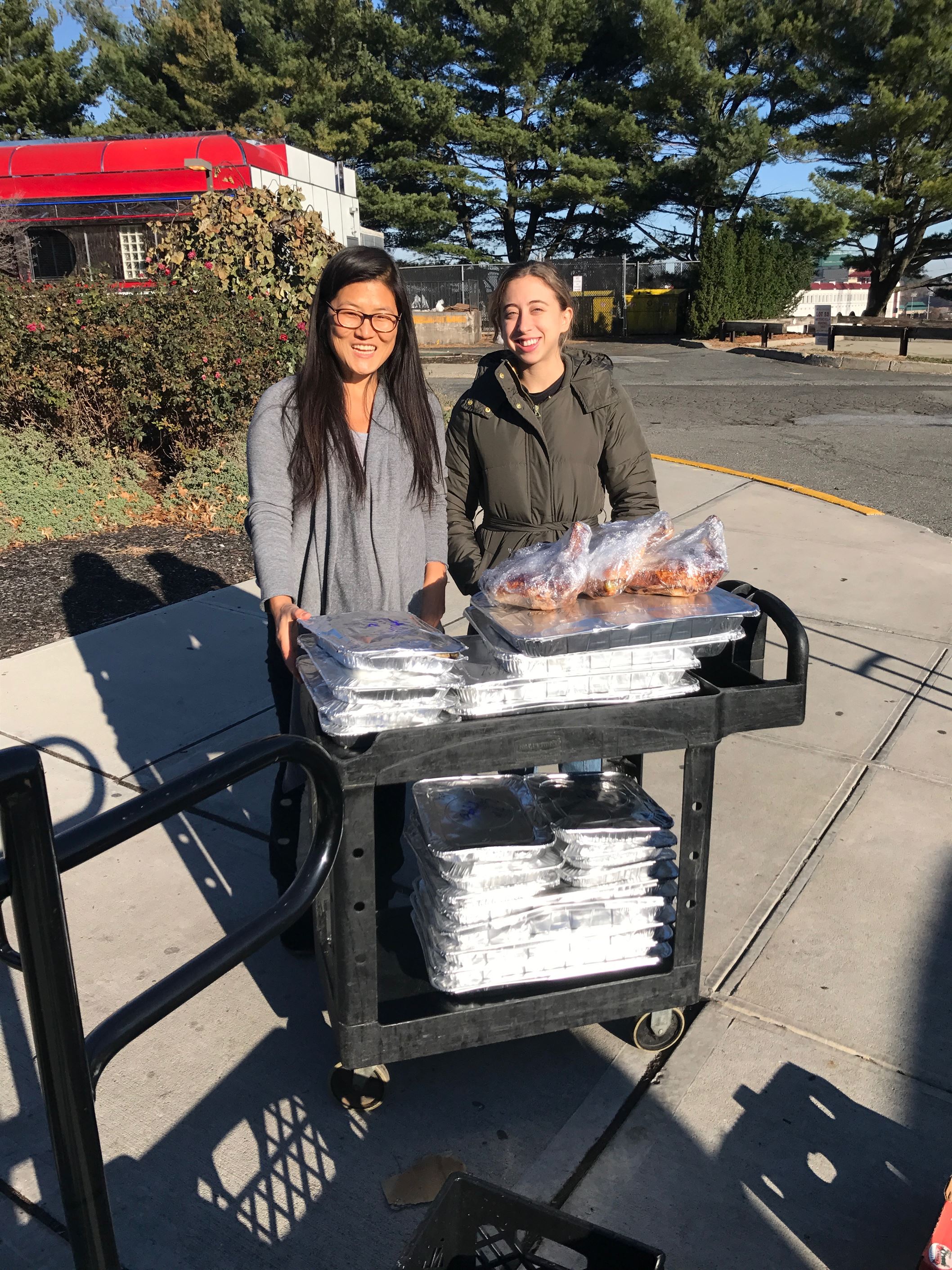A small crowd of students formed a makeshift line leading toward the cashier’s table in the Student Center cafeteria at Montclair State University. As the line started to progress, each customer confidentially retrieved his or her wallet from the bottom of his or her backpack or back pocket. Each student paid for their meal with their debit card, student ID or handed over a crisp bill without hesitation before finding a seat among a group of friends or by themselves.
Students take small bites of their meals before going to their next class. On the way to the door, each student stopped by one of the garbage bins to discard any remaining leftovers. These leftovers varied from scraps to half-eaten meals to almost completely untouched food.
Students and food establishments on campus constantly discard fresh food. According to Feeding America, more than 42 million Americans were food insecure in 2016. All of the campus food establishment waste encouraged several nutrition majors to help combat food insecurity in their community and nearby communities.
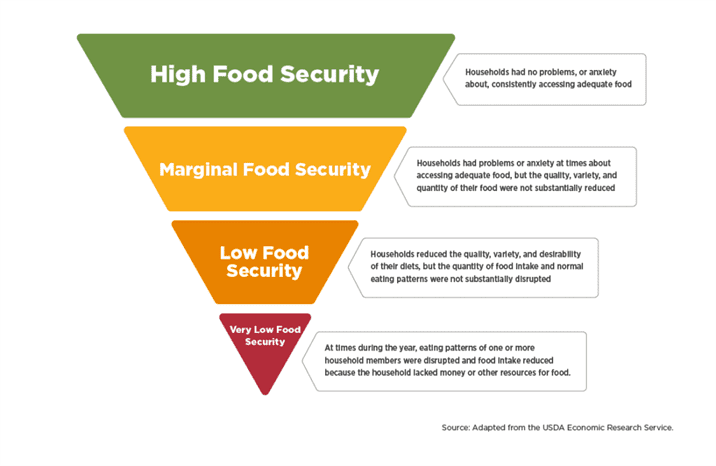
This chart explains the different levels of food security. Photo courtesy of feedingamerica.org
“I had seen a lot of [food] waste during one of my courses that was a food service course,” said Rebecca Yellin, senior nutrition major and president of the Montclair State Dietetics organization. Yellin is also a co-founder of the Food Recovery Network (FRN) chapter at Montclair State. “We had to go [to] locations on campus. I was placed at Sam’s Place, and one of the assignments was to observe the food that was being wasted or not being eaten and disposed of.”
This constant waste of food led Yellin and four other nutrition majors, Jennifer Melanson, Ki Keys, Barbara Stavrou and Alexa Dashko, to establish a FRN at Montclair State as their project for their applied community nutrition course. The FRN helps fight food waste by recovering perishable foods on campus. Afterward, they distribute the food to people such as the homeless, the unemployed, college students and many others who are food insecure. The FRN is able to reach so many facing food insecurity with the help of Montclair Emergency Services for the Homeless (MESH) and Chartwells Higher Education.
The FRN was officially established at Montclair State on Dec. 5, 2017. Since then, the network collected a total of 510 pounds of food varying from beef, chicken, vegetables, green beans, broccoli, Brussels sprouts and corn. Currently, food is only being taken from the Student Center cafeteria because of their predictability in leftovers as they cook in small volumes throughout the day.
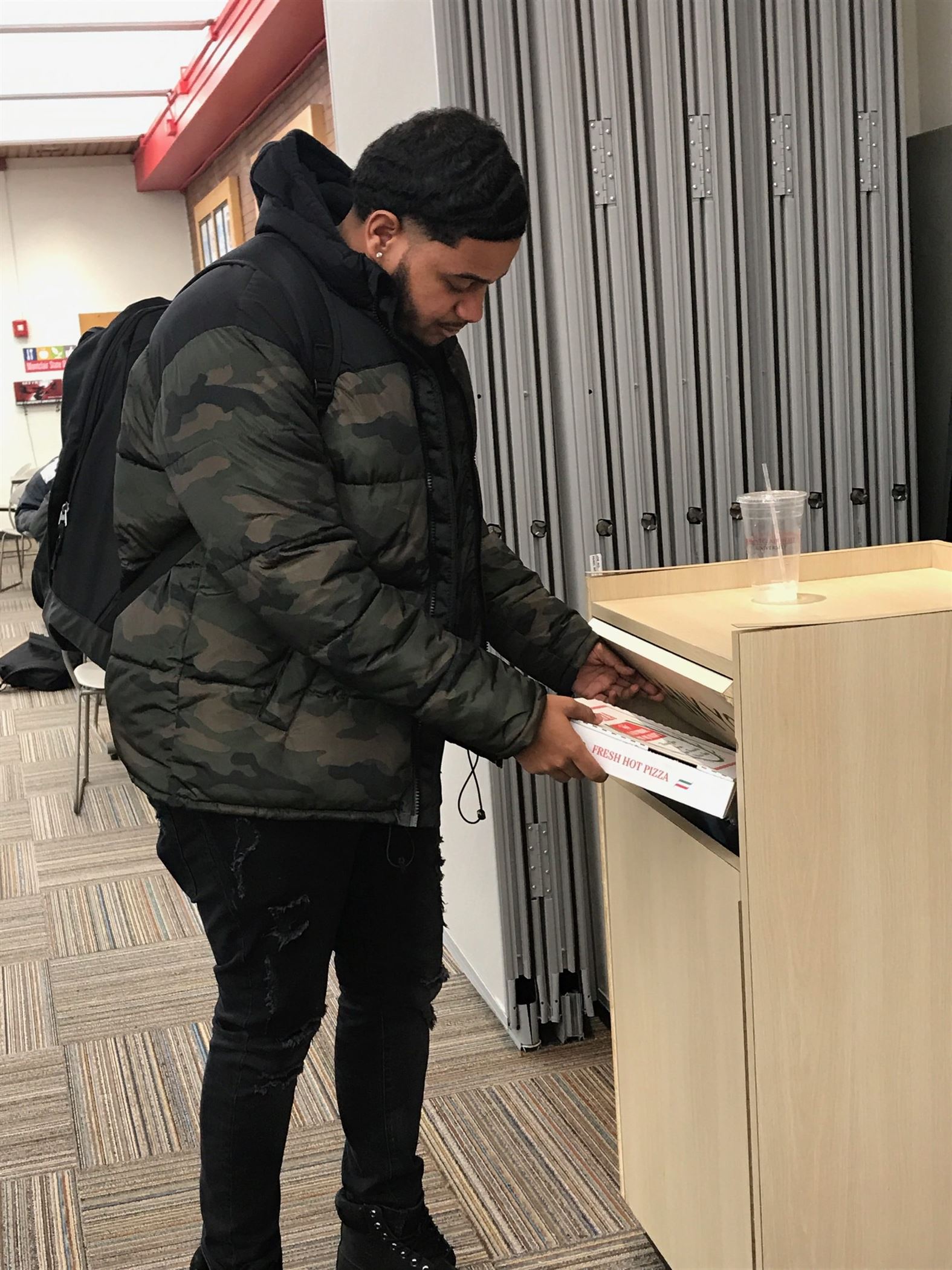
Aneudy Arvelo, a Montclair State junior, throwing out a pizza box on campus. Sunah Choudhry | The Montclarion
Even with FRN’s efforts, a large amount of good food is still being thrown out. Right now, food recovery is only occurring on Friday mornings based on the amount of volunteers available. The food thrown out is eventually tossed into landfills, which is extremely harmful to the environment.
“Food that goes to landfills is a major contributor to methane gas, so to be able to reduce that is very helpful to the environment,” Melanson said.
While the FRN at Montclair State is newly formed, according to the FRN website, the network was originally developed at the University of Maryland in 2011. Montclair State’s chapter is one of the 230 chapters in over 44 states around the U.S. that have formed. Each chapter must follow strict guidelines provided by the organization in a toolkit. These guidelines require students to send an application, attend an orientation, have a faculty advisor, create a leadership team and form a partnership with a community organization that can sustain perishable food.
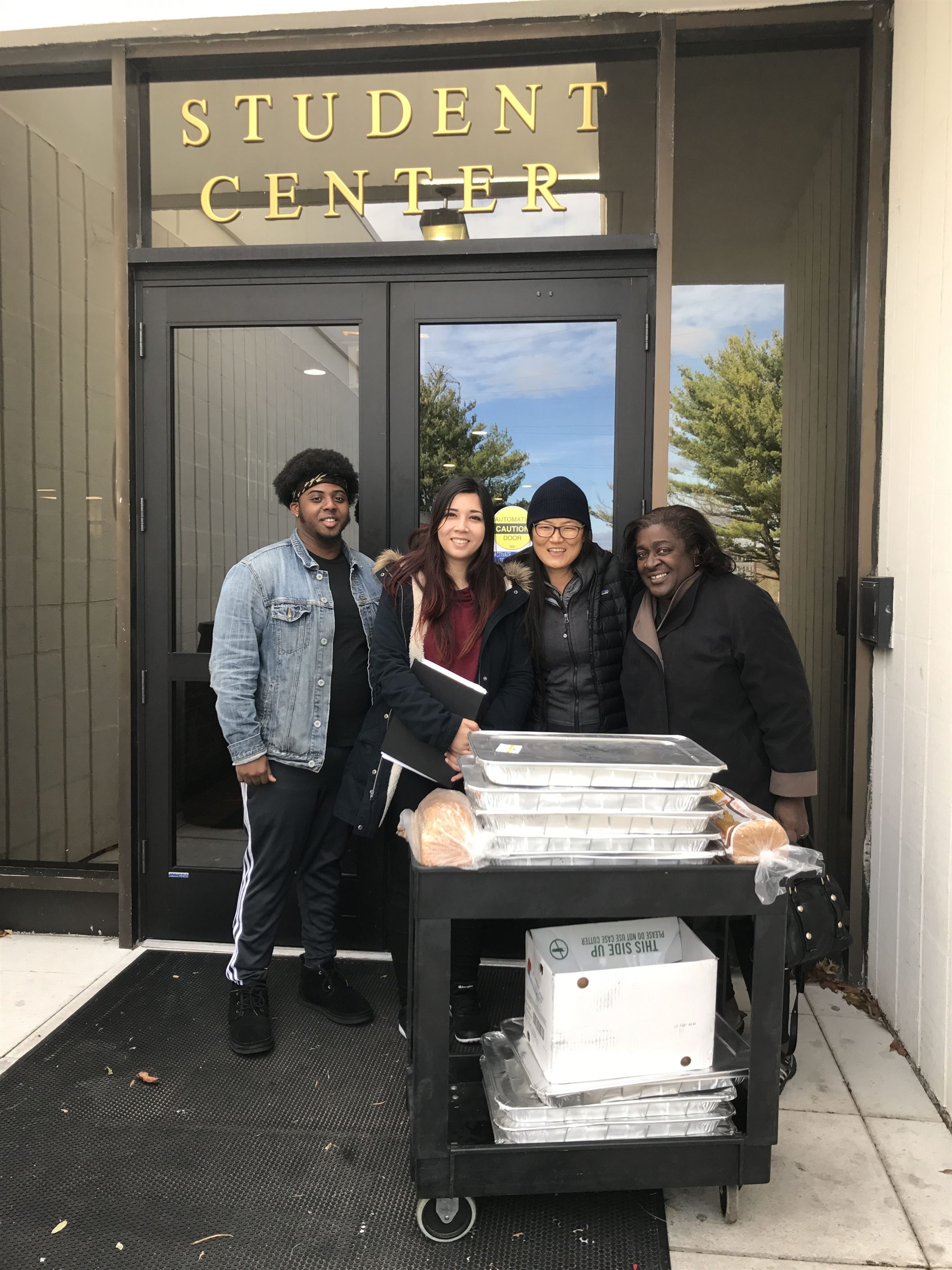
(Left to right) A Montclair Emergency Services for the Homeless (MESH) volunteer, Barbara Stavrou, Ki Keys, and Gwendolyn Ames stand in front of the Student Center with food recovered. Photo courtesy of Ki Keys
The group credited their chapter success with being provided a toolkit and their strong partnerships.
“Having that toolkit and not having to reinvent that wheel was really instrumental in the speed [of our chapter’s founding],” Keys said. “[The network] handed us a toolkit, and we just put the pieces together. Through the community learning service, who was able to bring Chartwells to us [as] that relationship was already established…We have a commitment from Chartwells to provide this food, [so] they do a lot of the heavy lifting.”
Keys described the process they go through to gather the leftovers.
“We are supposed to go and recover the food, package it and label it,” Keys said. “[We] hold it and supply our own transportation, which MESH comes and picks up. But all the utensils, scales, [and] equipment [are provided by] Chartwells. So we haven’t had to do any type of fundraising besides the manpower that we had to put into this project.”
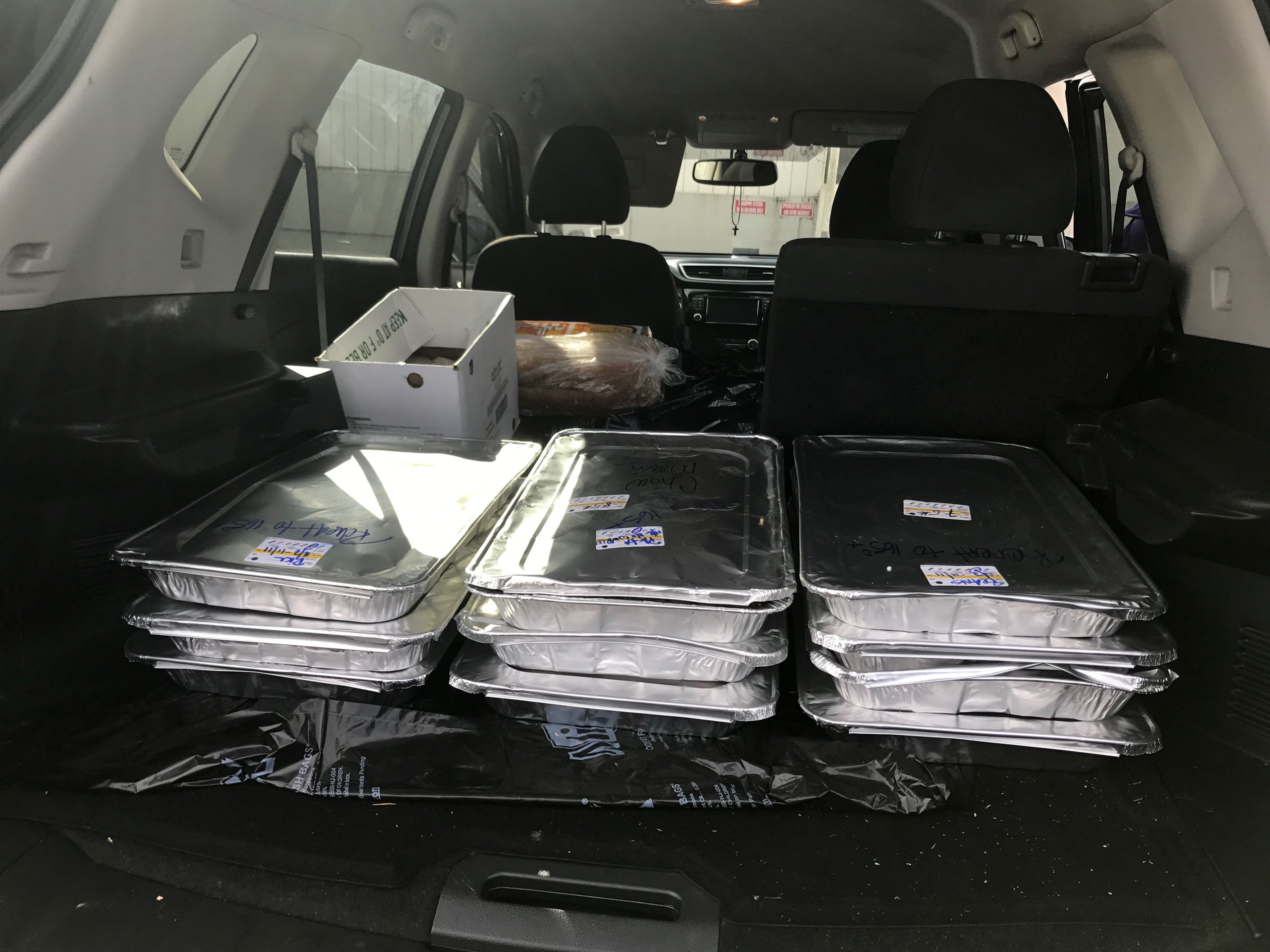
The food recovered from the Student Center cafeteria gets packaged and transported. Photo courtesy of Ki Keys.
The students also praised Dr. Lauren Dinour, their professor in the course and advisor, who “fueled the fire” in them through her motivation and collaboration, even in their most difficult moments.
“We really hit some rock-bottom moments, [when] every organization we went to meet was like, ‘No we can’t do it because x, y and z reasons,'” Keys said. “That is the reality of the community nutrition, but [Dinour’s] personal stories and how important it [was] kept us going.”
“This was their project, and something that they came to me and said they wanted to do,” Dinour said. “I am just so happy that I was able to facilitate this for them. I set up the groundwork, but they are really the ones who took it to where it is now. I know they had a lot of trouble finding a community base, and they worked really hard, beyond and above the course requirement to get this started. They inspire me…”
To contact the Food Recovery Network at Montclair State, their email is msdomsu@gmail.com

